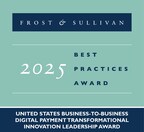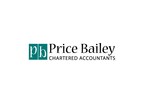Fintech PR
Xinhua Silk Road: Nighttime economy becomes new consumption engine for Kaifu District of Changsha in C. China’s Hunan

BEIJING, Sept. 15, 2023 /PRNewswire/ — The nighttime economy is becoming a new engine of consumption growth in Kaifu District of Changsha, central China’s Hunan Province, injecting new vitality into the city’s economic development.
The nighttime economy refers to business activities that take place between 6 p.m. and 6 a.m. in the service sector, including shopping, catering, entertainment and leisure. It is a new force in China’s economy.
Diversified nighttime economy has become an important way to meet the personalized needs of consumers, as an important part of Changsha’s nighttime economy, a number of nighttime cultural tourism consumption agglomeration areas with different scenes have emerged in Kaifu District.
Kaifu District has been devoted to updating consumption environment and optimizing business mode, Chaozong Street Historical and Cultural Block is a successful example that has been organically renewed by Kaifu District Government. Many of the cultural preservation attractions this block still shine under rejuvenation, and a variety of modern buildings have injected a trendy atmosphere into this century-old street, night business area of the block is about 40,000 square meters, which is a rising star in the nighttime economy of Kaifu District.
Besides, Kaifu District promotes its nighttime economy through a combination of business, tourism, culture and delicacy catering, exploring new business format and development path for nighttime economy. Currently, a total of 11 characteristic commercial streets and 9 regional commercial centers are on business during nighttime in Kaifu District, the three-dimensional and diversified night economic pattern of Kaifu District has been well received and welcomed by consumers.
It is learned that early in 2019, the district issued an implementation plan for accelerating the development of the nighttime economy, in the next move, Kaifu Districts plans to further enrich the nightlife consumption business content, organize night market cultural activities to fuel the continuous increase in nighttime economy.
Original link: https://en.imsilkroad.com/p/336116.html
Photo – https://mma.prnewswire.com/media/2211721/Changsha.jpg
![]() View original content:https://www.prnewswire.co.uk/news-releases/xinhua-silk-road-nighttime-economy-becomes-new-consumption-engine-for-kaifu-district-of-changsha-in-c-chinas-hunan-301928828.html
View original content:https://www.prnewswire.co.uk/news-releases/xinhua-silk-road-nighttime-economy-becomes-new-consumption-engine-for-kaifu-district-of-changsha-in-c-chinas-hunan-301928828.html

Fintech
Fintech Pulse: Your Daily Industry Brief (Complii FinTech Solutions, Gate City Bank, LeapXpert)

Complii FinTech Solutions: New Securities on ASX Signal Strategic Growth
Australian-based Complii FinTech Solutions has made headlines by listing new securities on the Australian Securities Exchange (ASX). This move marks a significant milestone in the company’s growth trajectory, showcasing its commitment to expanding financial technology services tailored to compliance and risk management for the financial services industry. The decision to list additional securities reflects a confident stride toward increasing market visibility and investor engagement.
Complii’s solutions have already proven instrumental for broker-dealers, emphasizing efficiency and automation in compliance workflows. With the fresh listing, it aims to leverage additional capital to enhance its product offerings and market footprint. Investors and stakeholders in the fintech ecosystem should watch this space as Complii scales its innovative approach to regulatory technology.
Source: TipRanks
Climate FinTech Innovation: Bees & Bears Secures €500 Million to Advance Green Financing
In a resounding boost for climate-focused financial technology, Bees & Bears has secured €500 million in financing commitments to revolutionize home energy solutions. The funding, which underscores the growing intersection of fintech and sustainability, will be channeled into accelerating the adoption of energy-efficient technologies in residential spaces.
The company’s platform connects homeowners with sustainable energy solutions, leveraging advanced analytics to optimize cost savings and environmental impact. By integrating fintech tools into climate technology, Bees & Bears exemplifies the potential for financial innovation to drive tangible environmental benefits. The success of this funding round also highlights investor confidence in the future of green fintech.
As global demand for sustainable solutions intensifies, initiatives like Bees & Bears could set a precedent for how fintech firms address pressing environmental challenges.
Source: EU-Startups
UK’s Fintech Landscape Faces Turmoil Amid “Debanking” Trends
The United Kingdom’s fintech sector, once a beacon for innovation, faces significant challenges as crypto, blockchain, and Web3 companies grapple with debanking practices. These trends have raised concerns about the country’s openness to emerging financial technologies, sparking debates about regulatory overreach and institutional biases.
Despite the UK’s strong reputation as a global fintech hub, debanking has forced many startups to either pivot their strategies or relocate operations. Industry leaders argue that this could stifle innovation and deter foreign investments. The situation calls for a delicate balance between regulation and fostering innovation to maintain the UK’s competitive edge in the global fintech race.
Policymakers must urgently address these concerns to rebuild trust and support sustainable growth within the sector.
Source: Forbes
Gate City Bank Partners with Lama AI for GenAI-Powered Loan Origination
Gate City Bank has chosen Lama AI to revamp its loan origination processes using generative AI technology. This partnership signifies a transformative step in personalizing and streamlining the lending experience for customers.
Lama AI’s platform employs advanced algorithms to analyze borrower profiles, improve risk assessments, and automate decision-making processes. For Gate City Bank, the integration promises enhanced operational efficiency and a competitive edge in the evolving financial landscape.
This collaboration reflects a broader trend where financial institutions increasingly embrace artificial intelligence to optimize services and meet customer expectations in real-time.
Source: FinTech Futures
LeapXpert Secures Series B Funding for Enterprise Expansion
LeapXpert, a leading provider of business communication solutions, has announced the successful close of its Series B funding round, positioning the company for accelerated growth across global markets. The latest funding underscores LeapXpert’s strategic focus on enterprise-grade communication platforms that prioritize compliance and security.
With an expanding clientele spanning various industries, the additional capital will fuel innovations in messaging and collaboration tools, catering to enterprises’ evolving needs in an increasingly remote and hybrid work environment. LeapXpert’s success exemplifies the growing demand for secure communication solutions in the fintech ecosystem.
Source: PRNewswire
Final Thoughts: A Week of Milestones and Challenges
This week’s developments highlight the dynamic interplay of innovation, regulation, and sustainability in the fintech landscape. From climate tech investments to the UK’s regulatory dilemmas, the industry continues to evolve, presenting both opportunities and challenges for stakeholders. Strategic partnerships, like Gate City Bank’s adoption of generative AI and LeapXpert’s global expansion, underscore the importance of innovation in staying competitive.
As the fintech ecosystem grows more complex, industry leaders and policymakers must collaborate to foster an environment that balances innovation with regulation, ensuring a sustainable and inclusive future for all.
The post Fintech Pulse: Your Daily Industry Brief (Complii FinTech Solutions, Gate City Bank, LeapXpert) appeared first on News, Events, Advertising Options.
Fintech PR
New Analysis: International Finance for Climate and Health Increased to US$7.1 billion in 2022, but Financing Remains Difficult to Access for the Most Climate-Impacted Countries
Data provides the most comprehensive analysis to date of self-reported donor financing, providing a critical baseline to strengthen climate and health action
DAVOS-KLOSTERS, Switzerland, Jan. 21, 2025 /PRNewswire/ — Today, at the 55th Annual Meeting of the World Economic Forum, Foundation S – the Sanofi Collective, Reaching the Last Mile, and The Rockefeller Foundation released a first-of-its-kind analysis of international finance for climate and health. The white paper, Resourcing Climate and Health Priorities: A Mapping of International Finance Flows from 2018-2022, finds US$7.1 billion was committed to the climate and health nexus in 2022, a significant increase from the less than US$1 billion committed in 2018. While this demonstrates increasing prioritization of climate and health among leading finance partners, the financing is not sufficiently reaching countries most impacted by climate change: less than 35% of finance from bilateral donors is channeled directly to countries, and less than 50% of overall funding analyzed flowed to low-income countries.
“While the increase in financing for climate and health projects is a promising step in the right direction, the overall amount of funding still falls far short of what is needed to protect lives and livelihoods from the devastating impacts of climate change,” said Dr. Naveen Rao, Senior Vice President, Health, The Rockefeller Foundation. “Donors from the public, private, and philanthropic sectors must increase their commitments to climate and health, while also making sure that funding reaches the communities that need it most.”
The analysis, conducted by SEEK Development in partnership with adelphi consult and AfriCatalyst, defines climate and health finance as international concessional financing for projects in and out of the health sector that address the direct health impacts of climate change, support the health sector to adapt to and mitigate climate change, and/or generate health co-benefits from climate action.
With increased political support for climate and health through the Group of 20, Conference of the Parties, and World Health Assembly, donors have stepped up their efforts to make financing available for projects at the intersection of climate and health. In 2022, this financing included:
- US$4.8 billion in commitments from bilateral donors
- US$1.5 billion in commitments from two health multilateral funds
- US$0.6 billion in commitments from four multilateral development banks
- US$130 million in commitments from philanthropies
- US$23 million in commitments from multiple climate multilateral funds
The report also found that bilateral donors are increasingly making health investments that include climate considerations: the share of climate finance directed to the health sector increased from 1% in 2018 to 9% in 2022. However, 24% of the available funding in 2022 was provided as loans rather than grants. Additionally, more than 90% of Asian Development Bank and Inter-American Development Bank’s total funding for climate and health financing was provided as loans.
“Countries on the frontlines of climate change urgently need more accessible financing to protect their population’s health,” said Vanina Laurent-Ledru, Director General, Foundation S. “Business as usual is no longer an option; public, private, and philanthropic collaborations can help to fast track flexible finance directly to local communities so they can urgently build climate-resilient health systems.”
“Well-financed climate action is an opportunity to transform countries and economies and achieve health and wellbeing for all,” said Nassar Al Mubarak, CEO, Reaching the Last Mile. “As the report demonstrates, now is the time to invest in more ambitious, coordinated and accessible funding, delivered where it is needed most.”
There are several limitations to this analysis that reflect the challenges in transparency and clarity countries face in accessing financing. First, donor data on climate and health commitments are self-reported and use different definitions of climate and health, making it difficult to verify which commitments constitute new financing for climate and health projects rather than reclassifications of tangentially related commitments or projects. And second, the lack of standardized data on finance flows from disparate funders and sectors limits comparison across finance categories. While recognizing these limitations, this report presents its data as an initial overview of the funding landscape, providing a baseline understanding to strengthen financing for climate and health.
Strengthening Global Commitments and Improving Access to Funding
In an era of polycrisis and growing fiscal constraints, countries have limited pathways to fund climate and health priorities. Evidence from the white paper suggests that funding from bilateral donors is likely to stagnate or potentially decrease in the near-term. However, multilateral development banks, along with health and climate multilateral organizations, are increasingly prioritizing climate and health in their strategies, signaling an opportunity to harness that financing to deliver on both climate and health ambitions. Yet even with increased financing opportunities, countries still face challenges accessing resources due to fragmented, complex, laborious finance processes and limited domestic capacity to access finance for large-scale investment.
To address these challenges, the report calls on donors, civil society, academia, and policymakers to support countries in accessing needed financing through the following actions:
- Increase funding available for climate and health: Scaling funding for climate and health solutions across sectors is necessary and feasible. Fiscal policy reforms and efforts to reform the global financial architecture can additionally increase finance towards shared climate, health, and development goals.
- Align investment priorities and frameworks to maximize impact: Developing a clear, shared understanding of evidence-based high-impact climate and health investment in all sectors will guide funders to allocate more funding to these interventions and support local decision making in prioritizing these actions.
- Accelerate delivery and improve access to funding: Funders must simplify and speed up access to finance for proven, high-impact climate and health actions while countries build their funding pipelines for more transformative actions. Clear and publicly available investment priorities, investment volumes, key performance indicators, and application processes can additionally enable access.
- Channel funding to country priorities: As country priorities are further defined and updated (e.g., through Nationally Determined Contributions), funders must collaborate and integrate investments to increase impact and reduce country burden. Future finance must emphasize scaling up grant-based finance that does not deepen the debt crisis and undermine the ability of the most impacted countries to invest in health, climate, and economic wellbeing.
- Standardize definitions and increase transparency: Funders and normative bodies must align on a clear definition and use a consistent methodology to report their climate, health, and cross-sectoral finance. Transparent reporting will give greater visibility into investments and enable donors, countries, and advocates to track finance against need and close critical gaps.
About the White Paper
As articulated in the COP28 Guiding Principles for Financing Climate and Health Solutions, this report responds to a clear need for baseline financial data on climate and health. Three endorsing organizations of the Guiding Principles – Foundation S – the Sanofi Collective, Reaching the Last Mile, and The Rockefeller Foundation – pooled funds to commission the analysis through RF Catalytic Capital, Inc., which served as the fiscal sponsor of the project. It was developed as a contribution to the Alliance for Transformative Action on Climate and Health (ATACH), which works to realize the ambition set at COP26 to build climate-resilient and sustainable health systems.
The report was developed and produced by SEEK Development in partnership with adelphi consult and AfriCatalyst, with editorial support from Global Health Strategies. More than 50 funding organizations, country governments, implementing organizations, and finance experts contributed to this report through participation in one-on-one interviews, in-person consultations on the sidelines of the 79th UN General Assembly in September 2024 and the World Health Summit 2024, virtual consultations held in November and December 2024, peer review, and the provision of data, insights, and analysis.
About The Rockefeller Foundation
The Rockefeller Foundation is a pioneering philanthropy built on collaborative partnerships at the frontiers of science, technology, and innovation that enable individuals, families, and communities to flourish. We make big bets to promote the well-being of humanity. Today, we are focused on advancing human opportunity and reversing the climate crisis by transforming systems in food, health, energy, and finance. For more information, sign up for our newsletter at www.rockefellerfoundation.org/subscribe and follow us on X @RockefellerFdn and LI @the-rockefeller-foundation.
About Foundation S ― The Sanofi Collective
Foundation S strives to create healthier futures for generations to come. We are driven by a singular purpose: to improve the lives of vulnerable populations by catalyzing community–based solutions, expanding access to medicines, and mobilizing collective action. Since our launch in 2022, we have made bold strides in helping to address some of the biggest global health crises, particularly for those living in low- and middle-income communities. With a focus on four key commitment areas, our vision is to improve the lives of vulnerable people by listening to those on the frontlines, supporting community-based solutions, and strengthening community health resilience for future generations.
About Reaching the Last Mile
Reaching the Last Mile represents the global health philanthropy of His Highness Sheikh Mohamed bin Zayed Al Nahyan, President of the United Arab Emirates. Through collaborative and innovative investments, RLM works to advance health equity, combat preventable diseases, and support the growth of strong and resilient health systems that leave no one behind. For more information, follow us on X and IG at @RLMglobalhealth.
About RF Catalytic Capital, Inc.
A charitable offshoot of The Rockefeller Foundation, RF Catalytic Capital, Inc. (RFCC) enables foundations, impact investors, businesses, governments, and other like-minded funders to combine their resources to build funding solutions for social impact and bring about transformational change. RFCC leverages The Rockefeller Foundation’s expertise and resources while collaborating with partners and investors to multiply impact and help to transform today’s greatest challenges into collaborative solutions. For more information, please visit rfcatalytic.org.
Media Contacts
Ashley Chang, The Rockefeller Foundation
media@rockfound.org
Sandrine Guendoul, Foundation S – The Sanofi Collective
Sandrine.Guendoul@sanofi.com
Lwazi Mletsane, Reaching the Last Mile
rlmmedia@brunswickgroup.com
Logo – https://mma.prnewswire.com/media/1699784/The_Rockefeller_Foundation_Logo.jpg

Fintech PR
Checkbook Applauded by Frost & Sullivan for Transformational Innovation in Providing an Efficient and Unified B2B Digital Payment System

Checkbook ensures payment efficiency and security while helping SMEs reduce manual errors, save time, boost operation scalability, and improve cash flow management.
SAN ANTONIO, Jan. 21, 2025 /PRNewswire/ — Frost & Sullivan researched the business-to-business (B2B) digital payment industry and based on its analysis, recognizes Checkbook with the 2025 United States Transformational Innovation Leadership Award. The company leads the B2B digital payment transformation by delivering a solution that challenges traditional payment methods. Its platform offers businesses a more efficient and reliable way to manage payments without the payee’s prior enrollment. This one-sided payment system revolutionizes the process by eliminating the need for recipients to provide any details upfront. By enabling payments through email or phone numbers, Checkbook reduces onboarding friction for recipients, accelerating the payment process. The platform also integrates real-time payments into everyday business operations, offering companies efficient and reliable payment solutions. This focus on simplifying the payee experience fills a long-standing gap in the B2B payment space where pre-enrollment is typically required. Furthermore, removing payee enrollment requirements saves significant operational costs, reducing the typical expenses from hundreds of dollars to pennies per payment.
Checkbook’s platform allows operation across multiple domestic and cross-border payment rails, including digital checks, Automated Clearing House (ACH), Zelle(r), and push to card based real-time payments. With Checkbook, businesses can access a full payment suite without relying on various vendors for different payment types, providing a more efficient and unified system. This cost-effective and streamlined approach balances speed, quality, and security, solidifying the company’s position as a market disruptor.
Checkbook’s platform offers a tailored solution, allowing businesses to send out bulk payments seamlessly through a comma-separated values(.csv) file upload or API integration. This functionality and the flexibility of various disbursement methods enable businesses to manage payout processes efficiently. The company also enhances the recipient’s experience by giving them control over how they receive their funds, whether by digital check, ACH transfer, or other methods, ensuring a smoother process and improving overall satisfaction.
Ain Sarah Aishah, best practices research analyst at Frost & Sullivan, observed, “Checkbook addresses key industry pain points. Its platform reduces onboarding friction and enables real-time payments, enhancing operational efficiency and agility.”
Checkbook platform’s open API also allows businesses to integrate Checkbook into their existing systems, facilitating automation and payment tracking. This capability is especially significant for industries that rely heavily on freelance workforces, where efficient payment processing directly impacts operational effectiveness. By automating these processes, SMEs can reduce manual errors, save time, improve cash flow management, and significantly boost operations scalability. Checkbook strengthens its digital payment process by implementing rigorous security measures that build trust between businesses and payees. It offers flexibility by allowing users to input their details, giving them control with additional verification at the recipient’s end. Visa Direct enables the company to enhance the speed, efficiency, and security of its payment processes. It facilitates the delivery of funds to over three billion eligible cards and bank accounts globally, playing a crucial role in securing real-time transactions for Checkbook’s clients. Leveraging Visa’s global network, Checkbook provides seamless and secure client payment experiences, meeting industry expectations for payment speed and accessibility. Its strategic partnerships, commitment to compliance, and comprehensive security framework give the company a competitive edge in delivering a holistic payment solution. By continuously enhancing its offerings and expanding into new markets, the company remains a leader in driving the future of digital payments.
“Checkbook’s innovative solution ensures seamless and secure payment processes, positioning it as a frontrunner in the B2B digital payments space. Its platform’s one-sided payment system, streamlined bulk payment solutions, and stringent security measures set it apart in the competitive market. Checkbook’s high customer satisfaction rates are a reflection of its dedication to delivering reliable, efficient, and user-friendly payment solutions,” added Dewi Rengganis, senior industry analyst at Frost & Sullivan. As Checkbook expands its reach and continues to innovate, it is well-poised to meet the future demands of a global digital economy. For its strong overall performance, Checkbook earns Frost & Sullivan’s 2025 United States Transformational Innovation Leadership Award in the B2B digital payment industry.
Each year, Frost & Sullivan presents this award to the company that has developed a product with innovative features and functionality that is gaining rapid acceptance in the market. The award recognizes the quality of the solution and the customer value enhancements it enables.
“We’re delighted to receive Frost and Sullivan’s 2025 Transformational Innovation Leadership Award. We’ve been working for years building an innovative and highly efficient digital payments system for businesses and it is truly refreshing to get this seal of approval from a company that is highly respected. We look forward to building and launching many more products in the future.” PJ Gupta, CEO, Checkbook.
Frost & Sullivan Best Practices awards recognize companies in various regional and global markets for demonstrating outstanding achievement and superior performance in leadership, technological innovation, customer service, and strategic product development. Industry analysts compare market participants and measure performance through in-depth interviews, analyses, and extensive secondary research to identify best practices in the industry.
About Frost & Sullivan
For six decades, Frost & Sullivan has been world-renowned for its role in helping investors, corporate leaders, and governments navigate economic changes and identify disruptive technologies, megatrends, new business models, and companies to action, resulting in a continuous flow of growth opportunities to drive future success. Contact us: Start the discussion. Contact us: Start the discussion.
Contact:
Ashley Shreve
E: ashley.shreve@frost.com
About Checkbook:
Checkbook enables businesses to send payments at scale. With Checkbook’s modern payments platform, customers can send payments with just an email address or phone number. Recipients do not need to create an account, log in, download an app or share sensitive bank account information. This saves time and money over traditional payment methods while providing a better experience for end users and our customers, helping them to make the pivotal transition from physical to digital payments. Today, Checkbook is powering the payments engine of many of the world’s largest financial services companies.
For more information, contact us to start the discussion on your payment needs
Contact:
Jana Raghavan
P: 6177924557
E: jraghavan@checkbook.io
Photo – https://mma.prnewswire.com/media/2601067/Checkbook_Award.jpg
![]() View original content:https://www.prnewswire.co.uk/news-releases/checkbook-applauded-by-frost–sullivan-for-transformational-innovation-in-providing-an-efficient-and-unified-b2b-digital-payment-system-302356208.html
View original content:https://www.prnewswire.co.uk/news-releases/checkbook-applauded-by-frost–sullivan-for-transformational-innovation-in-providing-an-efficient-and-unified-b2b-digital-payment-system-302356208.html

-

 Fintech6 days ago
Fintech6 days agoFintech Pulse: Your Daily Industry Brief (Plaid, Warner Bros., TransUnion, Monevo, FinVolution, CreditTech, Glenbrook Partners)
-

 Fintech5 days ago
Fintech5 days agoFintech Pulse: Your Daily Industry Brief (Amazon, Axio, Bank of England, New York Fed, Curql, PhotonPay, Google Pay, Mastercard, Nuvei, Outpayce)
-

 Fintech4 days ago
Fintech4 days agoFintech Pulse: Your Daily Industry Brief (Bench, FinovateEurope, Airwallex, PayPal, KCB Bank, UnionPay)
-

 Fintech PR6 days ago
Fintech PR6 days agoENIM TECHNOLOGIES AND THE ROYAL CANADIAN MINT EXPLORE THE INTEGRATION OF ECO-RESPONSIBLE METALS EXTRACTED FROM ELECTRONIC WASTE IN THE MINT’S OPERATIONS
-

 Fintech PR5 days ago
Fintech PR5 days agoSD’s Products Shine as a Highlight of Light Middle East 2025, Joining Tuya Ecosystem Partner Exhibition to Advance Global Market Expansion
-

 Fintech6 days ago
Fintech6 days agoio.finnet and Cede Labs Partner to Transform Multi-Exchange Portfolio Management for Institutions
-

 Fintech PR4 days ago
Fintech PR4 days agoBusinesses in the North will face greater challenges than peers in the South over the year ahead, according to research by Price Bailey
-

 Fintech PR4 days ago
Fintech PR4 days agoBybit: A Global Favorite Among Full-Time and Professional Traders and the World’s Second-most popular Crypto Exchange




